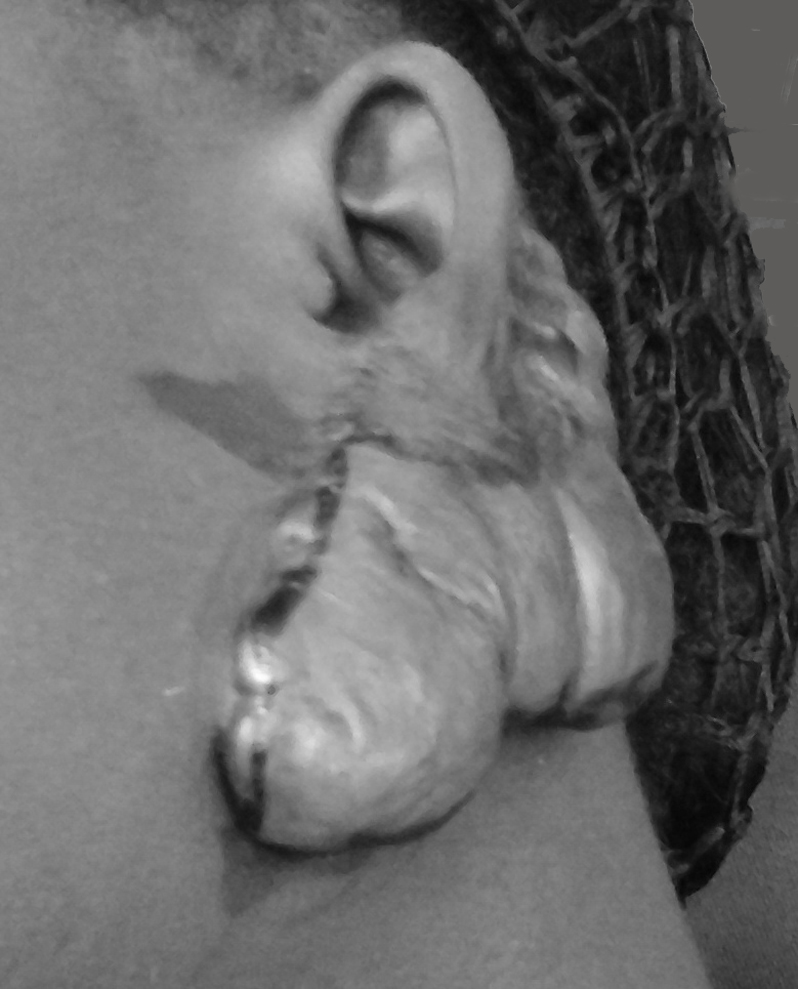Keloid scars of the earlobe in a young black African. Risk factors and care.

Downloads
DOI:
https://doi.org/10.26326/2281-9649.29.4.2034How to Cite
Abstract
Keloid is an unregulated proliferation of fibrous scar tissue that develops outside the original wound; as well as secondary to trauma or infection, it can appear spontaneously. Ear piercing is the most frequent risk factor for keloid formation. A case of keloid of the ear lobe is described in a teenager after a second ear piercing performed at age 13. The girl had already undergone two traditional surgical treatments. Dermatological examination showed an extended and pruritic keloid of the lobe and auricle. After obtaining an informed consent from the parents, we decided to implement a combined treatment, adding to the intralesional surgical removal corticosteroid therapy for local injection and pressotherapy, applying continuous pressure with an ear clip. After 18 months from the operation, the girl had no recurrences with a good clinical and esthetic result. Although this combined therapeutic strategy seems effective, prevention, raising awareness among both patients and parents about the possible formation of keloids, remains the most effective option.
